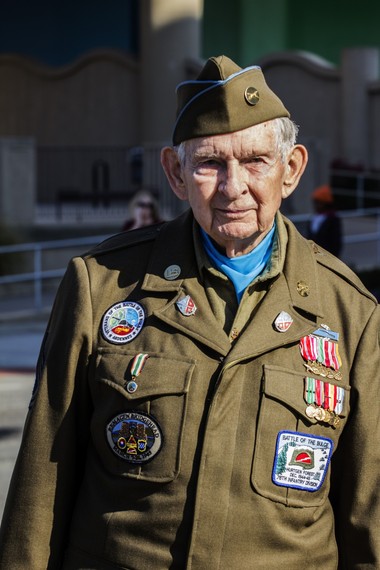"Are you a Vietnam veteran?" I asked "Stan," an auto mechanic I'd met a few minutes earlier in the course of a routine car checkup. He nodded affirmatively. Ten years of working at the Veterans Stress Project have given me a sense of how veterans move, act and think. They can often identify each other in seconds.
The signs of psychological traumatization are often apparent, and rarely get better over time. Combat can affect people decades later. That message is reinforced by a study published recently in a prestigious psychiatry journal.
The investigators found that the psychological effects of the Vietnam War are still plaguing veterans 40 years on. They estimated that that of the Vietnam veterans still alive, 271,000 have posttraumatic stress disorder (PTSD).
The study, performed by Charles Marmar and colleagues from the Langone Medical Center at New York University, is a follow up to the earlier National Vietnam Veterans Readjustment Study (NVVRS), conducted from 1984 to 1988.
Of the veterans still alive from that original study, 78.8 percent participated in the current research, conducted between July 2012 and May 2013. Getting data from that large a percentage is a challenge, and an editorial in the journal called the study "methodologically superb." However, nearly 20 percent of the NVVRS participants had died, a much greater mortality rate than usual. Many veterans have died while on waiting lists for VA (Veterans Administration) care.
Using a standardized test, the investigators found that about 10 percent of surviving Vietnam veterans met the criteria for PTSD. Over a third also suffered from major depression. A small minority were improving, but more than twice as many were deteriorating. The study recommended increased social attention to issues associated with aging, such as chronic illness, lack of social supports and cognitive difficulties in managing traumatic memories.
Other research has shown that PTSD changes the brain over time. The areas of the brain responsible for memory and learning shrink, while the circuits that signal stress become keenly developed.
The Marmar study sounded a loud warning that society might be in for a similar challenge as the current generation of veterans of the Middle East wars age. The cost of treating each veteran with PTSD is estimated at $1.4 million in internal VA studies. That brings the bill for treating both Vietnam and current veterans to over $1 trillion. As well as the human misery involved, this imposes an enormous fiscal cost on the country.
At the Veterans Stress Project, we've now honed treatments that show over 80 percent of veterans recovering from PTSD. Several randomized controlled trials demonstrate reduced depression and anxiety in veterans as a bonus to successful PTSD treatment. Pain, insomnia, and traumatic brain injury (TBI) symptoms also reduce.
As a society, we have the therapeutic tools to help veterans like Stan. The next step is for the VA to implement those tools. While redirecting a massive organization like the VA toward non-drug self-help therapies is going to take time, it carries an immense payoff to suffering veterans and their families, as well as to a society struggling with an enormous national debt. We have a strong social incentive to treat veterans differently this time around.
